
The 2025 SGO meeting will feature readouts of potentially impactful trial data in ovarian cancer, cervical cancer, and other gynecologic malignancies.

Your AI-Trained Oncology Knowledge Connection!


The 2025 SGO meeting will feature readouts of potentially impactful trial data in ovarian cancer, cervical cancer, and other gynecologic malignancies.

A phase 1b evaluating NXP800 in platinum-resistant ARID1A-mutated ovarian cancer is open for enrollment in the United Kingdom and the United States.
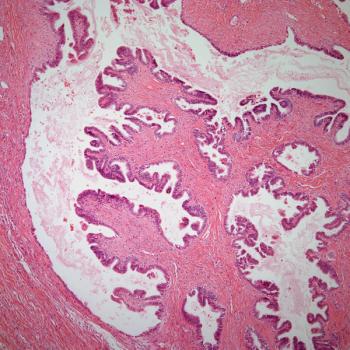
Even when adjusting for prior taxane responses in patients with ovarian cancer, ixabepilone/bevacizumab appears to yield survival benefits in a phase 2 trial.

Findings from the phase 2 RAMP 201 trial highlight responses with avutometinib/defactinib in those with KRAS-mutated low-grade serous ovarian cancer and other patient subgroups.

Several patients with TP53 Y220C–mutated ovarian cancer experience tumor shrinkage following treatment with rezatapopt in the phase 1/2 PYNNACLE study.
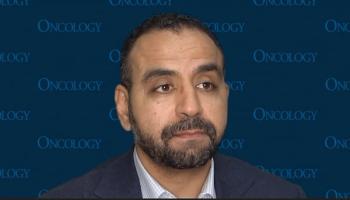
Although immature, overall survival data from the KEYNOTE-868 trial may support the use of pembrolizumab plus chemotherapy in patients with endometrial cancer.
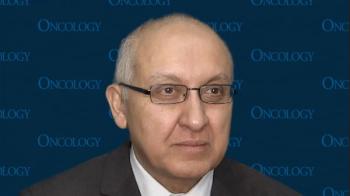
Dostarlimab plus chemotherapy appears to yield favorable overall survival in patients with mismatch repair proficient endometrial cancer.
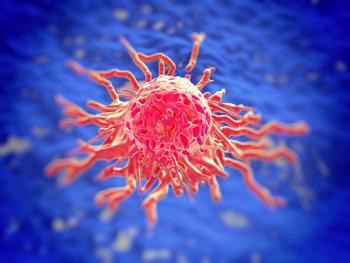
Nab-Sirolimus appears to produce responses in patients with perivascular epithelioid sarcoma regardless of TSC1/TSC2 mutation status.

Ex vivo generation of CD3-positive, CD56-positive Natural Killer-Like (NKT) with CRX100 was successful in all 7 patients with ovarian cancer in a phase 1 trial.

Data from the DUO-E trial support potential new durvalumab-based treatment options for patients with advanced or recurrent endometrial cancer.

Data from the phase 3 LEAP-001 study support lenvatinib plus pembrolizumab as an active combination for endometrial cancer.

Brian Slomovitz, MD, MS, FACOG discusses the use of new antibody drug conjugates for treating patients with various gynecologic cancers.
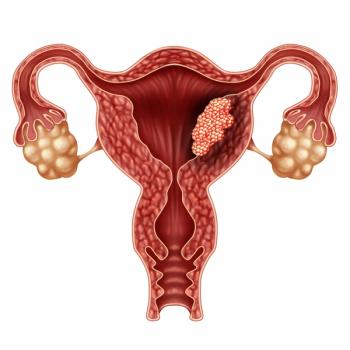
SEER data showed that Black patients endometrioid endometrial carcinoma had higher 5-year cancer-related death rates compared with their White counterparts.

A phase 2 trial showed favorable antitumor activity when tislelizumab plus chemotherapy was used for patients with locally advaned cervical cancer.

Patient reported outcomes from the phase 3 MIRASOL trial showed improvement when mirvetuximab was used vs standard of care in folate receptor-alpha positive ovarian cancer resistant ovarian cancer.

The phase 2/3 NRG-GY005 trial assessing olaparib plus dediranib did not improve survival vs standard of care in ovarian cancer.
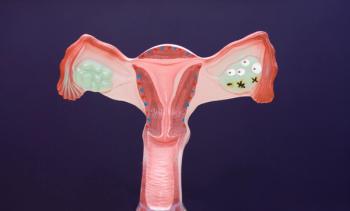
Study finds social determinants of health linked to variations in cervical cancer rates.
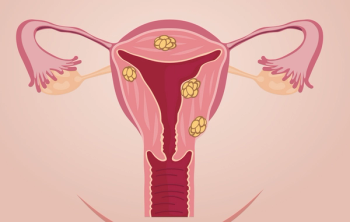
The survival benefit with dostarlimab/chemotherapy was deemed unprecedented in patients with microsatellite instability high primary advanced or recurrent endometrial cancer.

Results from the KEYNOTE-868 trial showed a favorable benefit of pembrolizumab plus chemotherapy across endometrial cancer subgroups.
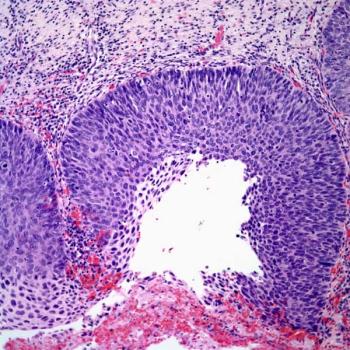
Findings from the phase 2 SKYSCRAPER-04 trial support dual targeting of TIGIT and PD-L1 in patients with PD-L1–positive cervical cancer, says Ritu Salani, MD.

Data from the phase 3 MIRASOL trial support mirvetuximab soravtansine as a new standard of care for patients with folate receptor α–positive, platinum-resistant ovarian cancer, says Kathleen N. Moore, MD, MS.

A recovery tracker and other digital tools may be useful in helping to manage patient symptoms following debulking surgery for gynecologic cancer, according to an expert from Memorial Sloan Kettering Cancer Center.

Common symptoms following debulking surgery for gynecologic cancer appear to include pain, diarrhea, and nausea, according to an expert from Memorial Sloan Kettering Cancer Center.

Patients who use a recovery tracker tool appear to experience lower hospital readmission rates following gynecologic cancer debulking surgery compared with those who did not.

Medical oncologists and gynecologic oncologists alike have a shared responsibility to help treat symptoms of neuropathy in patients undergoing chemotherapy for gynecologic cancer, according to an expert from Duke University Medical Center.

Experts from UCLA Health discuss key data presented at The Society of Gynecologic Oncology 2023 Annual Meeting on Women’s Cancer and how they may apply to clinical practice.

Future research assessing cryocompression for those with gynecologic cancers will make use of different products to make the intervention easier and more accessible for patients.

Cryocompression demonstrates potential for preventing chemotherapy-induced neuropathy for those with gynecologic cancers, according to an expert from Duke University Medical Center.

Investigators report that most patients with gynecologic cancers were able to tolerate cryocompression to help manage chemotherapy-induced neuropathy, according to an expert from Duke University Medical Center.

The addition of radiation to chemotherapy did not improve overall survival in patients with advanced endometrial cancer, according to an expert from Northwestern Medicine.